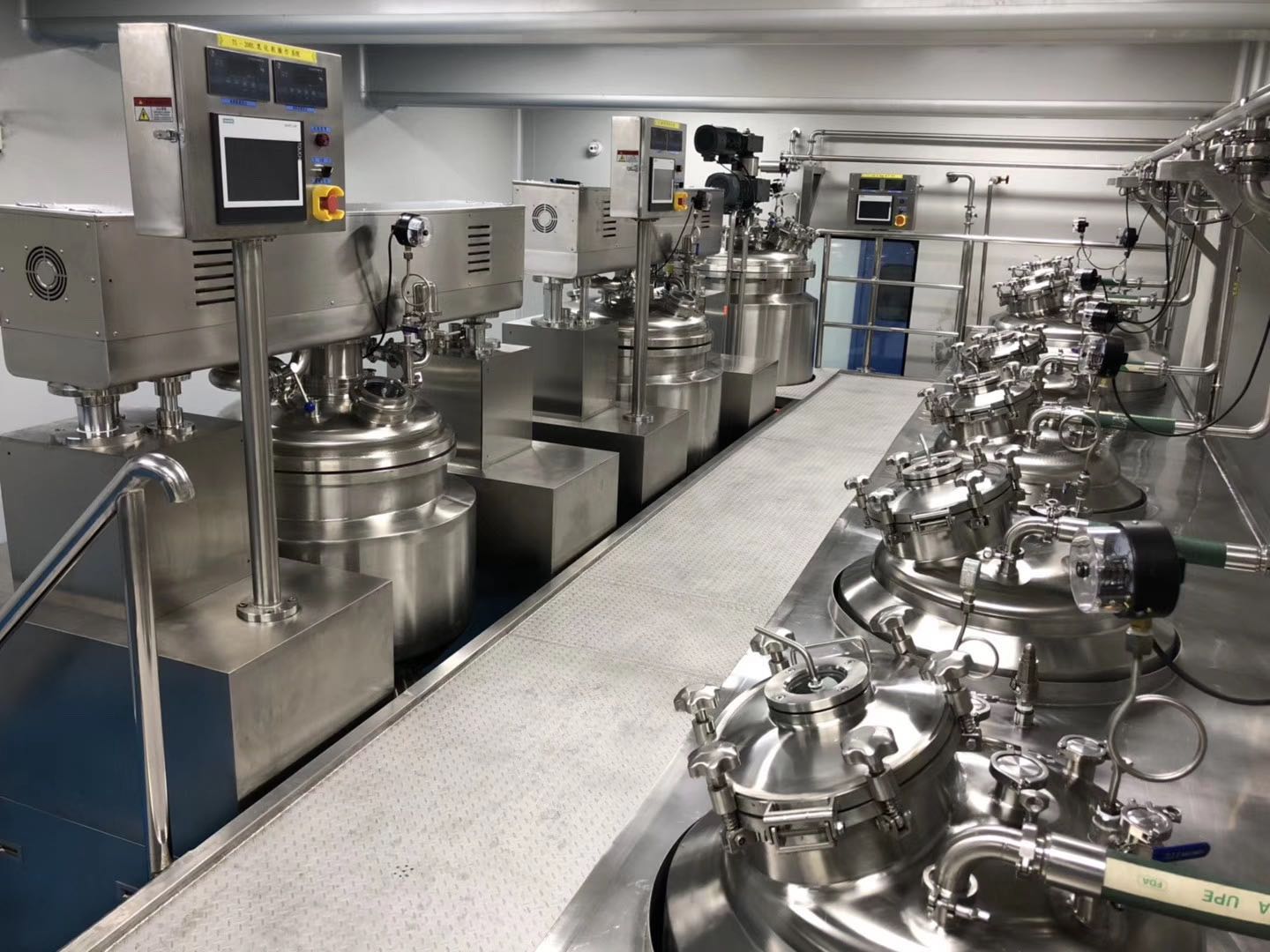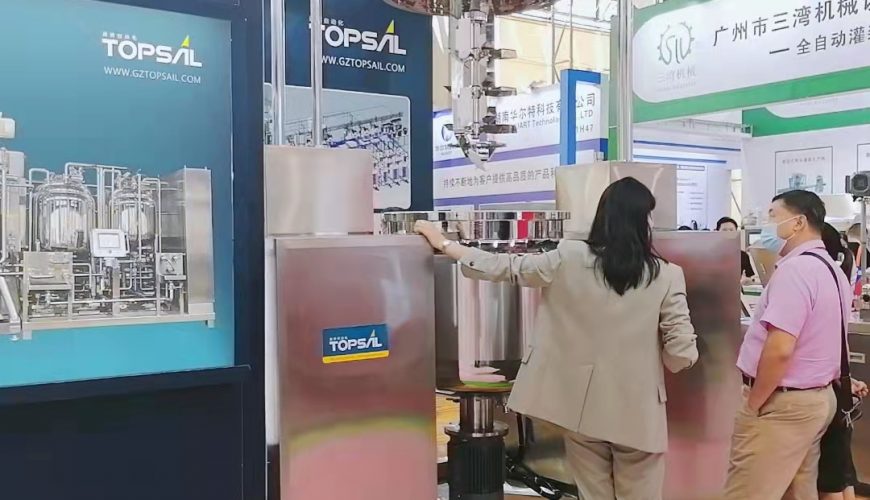The existence of emulsifying machine in the production process of daily chemical products is simply the existence of super power. Large scale application, daily cosmetics, emulsions, creams, emulsifying products, etc. are inseparable from the role of emulsifying machine. How much do you know about this powerful emulsifying machine?
The emulsification machine is mainly an emulsification equipment developed for the production process of cosmetics enterprises. The rotor and spindle of the homogenizing head rotate at a high speed of 2800 revolutions per minute, so that the materials can be fully broken and mixed evenly, so that the water phase and oil phase materials can be integrated. The emulsifier shears, disperses and impacts the materials through the high-speed rotation of the homogenizing head connected with the engine. In this way, the material will become more delicate and promote the oil and water to blend. Emulsifier is widely used in cosmetics, shower gel, sunscreen and many other cream products. Sauce and juice in the food industry. Ointment in the pharmaceutical industry. Emulsifier is used in petrochemical industry, paint, paint, ink, etc.
At present, the mainstream TopSail vacuum homogenizing emulsification machine in 2019 has more powerful functions. The vacuum environment not only uses vacuum difference to self absorb materials, but also ensures product quality to prevent foaming and raw materials from being polluted and oxidized due to long-term air exposure. At the same time, it adopts the homogeneous structure of German technology and the imported double end mechanical seal effect. The maximum emulsification speed can reach 4200 rpm, and the maximum shear fineness can reach 0.2-5um; After high-frequency cycle, we finally get high-quality products without bubbles, delicate and stable.

TopSail vacuum homogenizing emulsification machine
Application Area
1. Emulsifier is widely used in industries such as adhesives, paints and coatings, cosmetics, food, medicine, plastic resin, printing and dyeing, ink, asphalt, etc.
2. Fine chemical industry: plastic, filler, adhesive, resin, silicone oil, sealant, slurry, surfactant, carbon black, defoamer, brightener, leather auxiliary, coagulant, etc.
3. Petrochemical industry: heavy oil emulsification, diesel oil emulsification, lubricating oil, etc.
4. Daily chemical industry: washing powder, concentrated washing powder, liquid detergent, various cosmetics, skin care products, etc.
5. Paint and ink: emulsion paint, interior and exterior wall paint, water-based oily paint, nano paint, paint additives, printing ink, printing ink, textile dyes, pigments, etc.
6. Biomedicine: sugar coating, injections, antibiotics, protein dispersants, drug creams, health products, etc.
7. Pesticides and fertilizers: pesticides, herbicides, emulsifiable concentrates, pesticide additives, fertilizers, etc.
8. Food industry: chocolate crust, fruit pulp, mustard, cake residue, salad dressing, soft drinks, mango juice, tomato pulp, sugar solution, edible essence, additives, etc.
9. Nano materials: nano calcium carbonate, nano coatings, various nano material additives, etc.
10. Road asphalt: common asphalt, modified asphalt, emulsified asphalt, modified emulsified asphalt, etc.
The scope of application is applied to any process that needs to be stirred, homogenized, crushed, suspended and dissolved, such as cosmetic emulsion and glue slurry. In order to meet different process requirements, the scope of use can be expanded.
 中文站
中文站 En
En






